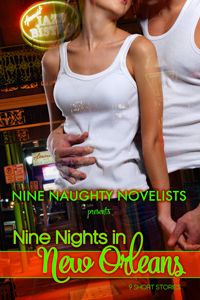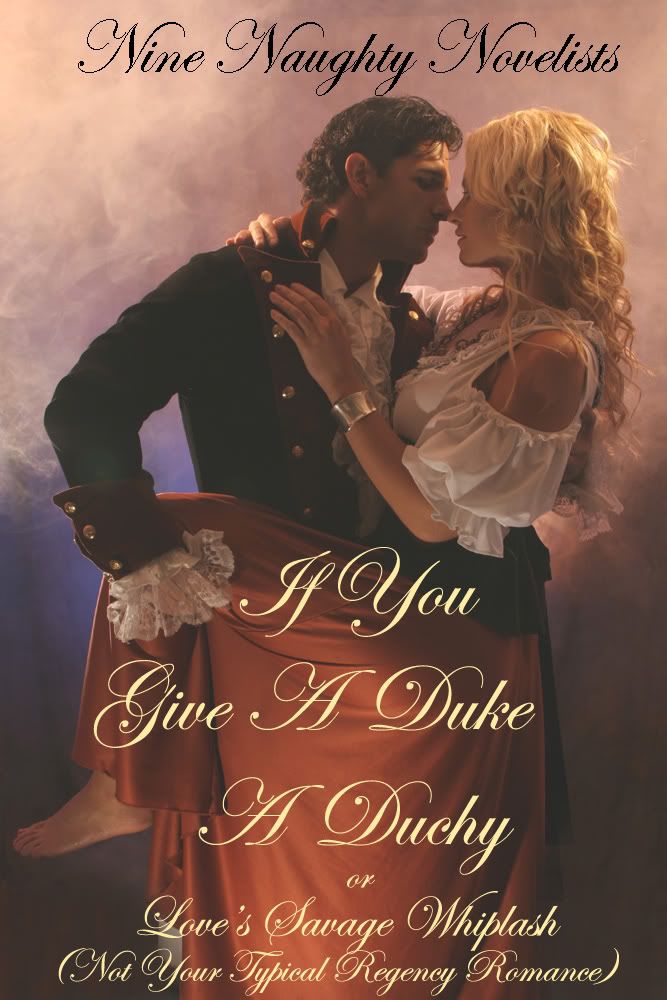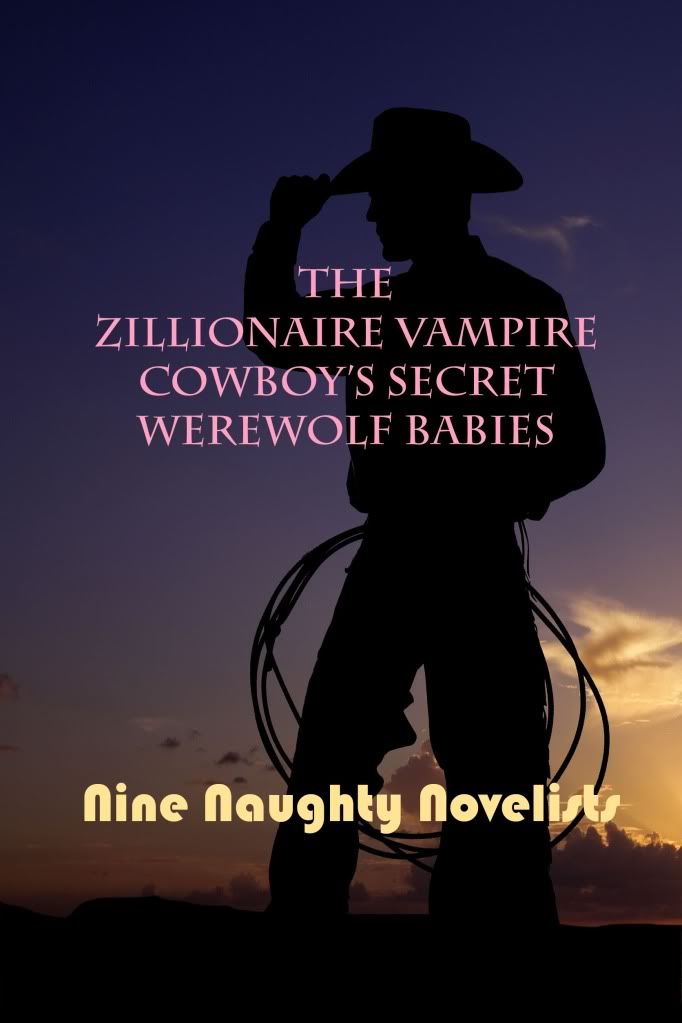
 I'm only a romance writer by night--by day I'm a law librarian, and I do a lot of research. I love research. When I'm at work, I get a kick out of tracking down obscure facts and figures or locating cases or articles based on very little information (i.e., "It was an antitrust suit in the Southern District -- or maybe the Northern, I don't remember--and it had something to do with medical devices. No, I don't know which ones--just, you know, medical devices.") My library career has helped make me a formidable trivia contestant and left millions of interesting but ultimately useless bits of knowledge lodged in my brain. (Loving County, Texas is the least populous county in the United States. The PTO once granted a patent (mistakenly) for a perpetual motion machine. There is such a thing as the Pressure Sensitive Tape Council.)
I'm only a romance writer by night--by day I'm a law librarian, and I do a lot of research. I love research. When I'm at work, I get a kick out of tracking down obscure facts and figures or locating cases or articles based on very little information (i.e., "It was an antitrust suit in the Southern District -- or maybe the Northern, I don't remember--and it had something to do with medical devices. No, I don't know which ones--just, you know, medical devices.") My library career has helped make me a formidable trivia contestant and left millions of interesting but ultimately useless bits of knowledge lodged in my brain. (Loving County, Texas is the least populous county in the United States. The PTO once granted a patent (mistakenly) for a perpetual motion machine. There is such a thing as the Pressure Sensitive Tape Council.)As a writer, I also enjoy doing research, and not just because it's a great guilt-free procrastination tool. Thanks to the Internet, it's no longer an ironclad rule that one should only write about what one knows. I've never set foot in southern Coloado, but thanks to the web I know a lot about Canon City, CO, the basis for the town of Fremont in Yours, Mine and Howls. I have a very sketchy understanding of any kind of science or engineering, but the Internet has helped me figure out plausible inventions for my steampunk WIP.
I tend to assume that everyone spends as much time online as I do, but of course that's not true. I also tend to assume that everyone knows how to do an efficient Google search, but that's not true either. I get lots of calls from frustrated attorneys or friends and family members who couldn't find something online that I was able to get to quickly. Most of the time they couldn't find it because they don't know how to use Google effectively, or it took them a long time because they didn't know someone else had already done the research for them.
To reduce the amount of noise--i.e., irrelevant hits--you might get from Google, start with a very specific, targeted search. If you just plug a bunch of words into Google, it's going to return pages containing at least one, but not necessarily all, of your search terms--it assumes an "or" between all your terms. Putting a plus sign (+) in front of each word will return only those pages that contain all your terms. Put a minus sign in front of words that you do NOT want in your hits. Use quotation marks to get only specific phrases. And if you use the Advanced Search template, be aware that specifying the date of the page--how recently it was updated--can really throw off your results.
If your search concerns scientific, historical or other factual information, try it on Google Scholar first (scholar.google.com) to cut down on noise and increase reliability.
There's a concept in legal research called "one good case." All you have to do is find one case that fits your requirements. Because cases cite to other cases, once you get your one good case you'll find others as well.
The same is true for any other type of research. Whatever subject you're researching, there's a 99.99% chance someone else has researched it already and put together a page of links to other websites about it. I don't care how esoteric, obscure or narrow the subject is, there's a website for it and, 75% of the time, a Wikipedia entry as well. (Wikipedia, BTW, is generally reliable for scientific, physical or non-controversial stuff. For stuff that's open to interpretation or of a subjective nature you should be wary of it.) Once you'd found your one good page, if you think there is any chance, AT ALL, that you might one day need to revisit the subject of your research, bookmark it. I guess theoretically there might be a limit to the amount of bookmarked, favorite'd sites you can keep in Firefox or IE Explorer or Chrome, but I sure don't know anyone who's ever hit it.
I was going to include a bunch of links to research sites I've found useful as a writer, but this post is getting long and I need to go to bed (yes, I normally write my posts the night before they're due.) If y'all are interested in such sites, I'll do a follow up post.
In the meantime, if you're a writer working on a story that doesn't involve a subject you know inside out, you better do your research. Some reader, somewhere, will know the city or the industry or the culture at the center of your plot and if it's clear that you don't know what you're writing about, that's a reader you've lost for good.

("Lawyer of the Year" cartoon from Stu's Views. "Look it up" cartoon from Librarian Avengers.)


















2 comments:
Wow, Kinsey, I knew some of this stuff but I'd forgotten a lot of it. Thanks!
Love this post, Kinsey! I didn't know some of those ways to limit Google searches! Yay! (and thanks ;))
Erin
Post a Comment